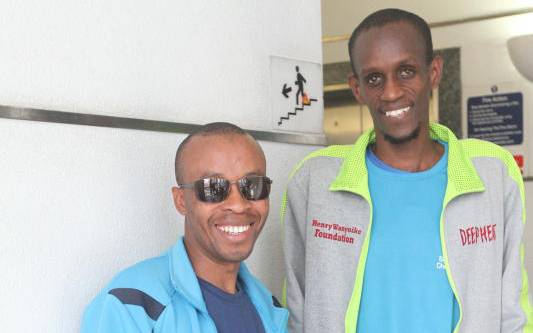
Henry Wanyoike (left) with his guide Paul Kihumba during the interview with the Standard at the I&M Building, Nairobi. [Elvis Ogina.Standard]
When Wanyoike went to bed that night on the last day of April in 1995, it was as a normal 21-year-old man with the world at his feet. Sure, he had had a long day, one that had started out with a horrible headache, but there was nothing that solid rest couldn’t solve. And so with a quick word to his mum, he slipped into bed. A few dreamless hours later, he would awake to the sounds of children playing.